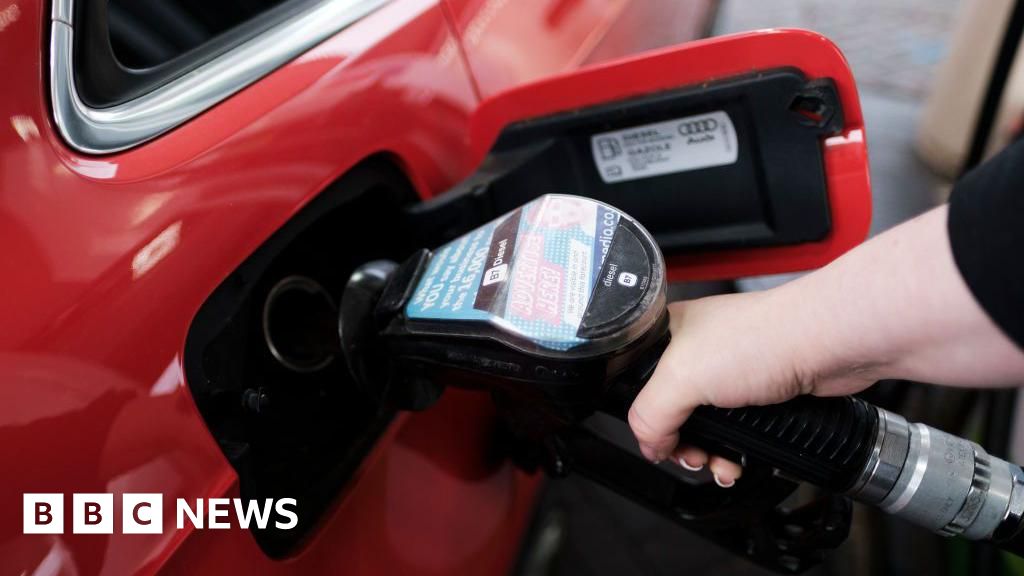ARTICLE AD BOX
 Image source, Jacopo de Simone
Image source, Jacopo de Simone
Jacopo de Simone, pictured with his girlfriend Alicia, had £22,500 stolen after criminals got into banking apps on his mobile
By Dan Whitworth
Money Box reporter, BBC Radio 4
A pickpocket took Jacopo de Simone's mobile phone and used his banking apps to steal £22,500.
He said his bank investigated but found him liable for the losses so he is still fighting to get the money back.
He is just one victim of the growing threat of mobile phone fraud and banks need to do more to tackle it, according to charity the Fraud Advisory Panel.
UK Finance, which represents 300 banks, said the industry was constantly monitoring fraud threats.
Criminals are stealing mobiles not for the device but to try to access finance apps to steal thousands of pounds, the Fraud Advisory Panel said.
Mr de Simone fell victim to the crime while walking around London Bridge in May 2022 when his phone was pickpocketed.
How to protect yourself from mobile phone fraud
- Use biometric data (face or finger print) ID if possible
- Remove banking apps from your phone and keep them on devices that stay at home
- Use different pin numbers for unlocking your phone and opening banking apps
- Don't store passwords or pin numbers on your phone
Because the device was locked and password protected, Mr de Simone said that initially, while he was upset his phone had been stolen, he didn't think much more of it until the morning after when he checked his online banking.
"I found both my current account and savings accounts had been drained of £22,500. I was completely shocked. I didn't know how this was possible.
"I don't access my phone using a pin code - I use facial recognition. My Barclays pin is different to my phone pin and they'd need to have both of them."
He phoned Barclays and also reported it to the police.
He said Barclays told him it would do an internal fraud investigation which later resulted in Mr de Simone being held liable for all the losses.
"They could not identify a point of compromise from the back end - to them it looked like the pin had been entered.
"The only thing they could suggest was that someone knew the code therefore it's gross negligence on my part apparently.
"I was totally in shock, incredibly unsettled and you just think these things get resolved quite quickly," he said.
Image source, Jacopo de Simone
Image caption,Eight months on from having his phone stolen Jacopo is still fighting his bank to prove he's an innocent victim and shouldn't be held liable for the money stolen from his accounts
After eight months of evidence gathering and dealing with the police, an investigator at the Financial Ombudsman Service (FOS) upheld Mr de Simone's complaint against Barclays which now, if it disagrees with this, has the opportunity to ask the ombudsman to examine the case.
Barclays said: "It wouldn't be appropriate to issue a statement until the matter has been fully assessed and FOS have been able to review the full circumstances of this case that we will be presenting to them."
How does mobile phone fraud happen?
Cyber security expert Dr Jessica Barker says it can happen in a number of ways:
- Criminals 'shoulder surf' a victim to learn their PIN
- Criminals steal phone (mugging, pickpocketing, drink spiking)
- Use PIN to unlock phone and then try the same PIN for access banking apps
- Criminals search phone's notes section for banking passwords or PINs
Arun Chauhan is a solicitor and director at Tenet Law which specialises in dealing with fraud and also a trustee of the Fraud Advisory Panel charity. He said some banks rely on victims of fraud getting frustrated with the complaints process and giving up: "I think the banks are aware of it [mobile phone fraud] but I feel they are inconsistent."
"Some banks are dealing with it and recognising the police see this as a crime and there's no involvement of the customer and that they [the customer] need to be refunded," he said.
"Some other banks are, unfortunately, causing almost fatigue on customers to almost have to force the issue... and it's taking a long time to get some recovery."
"The Payment Services Regulations say unless the consumer is significantly careless, they use the words grossly negligent, the bank should refund.
But he said it should be on the bank to prove that the customer is at fault.
"It shouldn't be for the customer to persuade the bank that they've nothing to do with this," he said.
UK Finance is the trade body which represents 300 banks and financial institutions. It says industry is constantly monitoring fraud threats to help protect customers, that this type of mobile phone fraud is not a common occurrence but that the industry is not complacent about new and emerging threats.
You can hear more on this story on BBC Radio 4's Money Box podcast by clicking here.

 2 years ago
97
2 years ago
97








 English (US) ·
English (US) ·